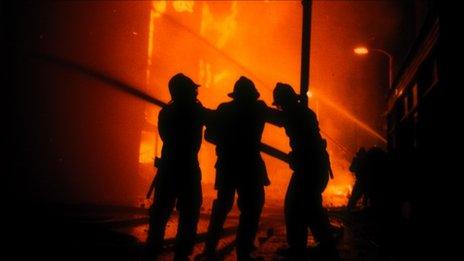Brixton gun victim Cherry Groce 'was inspiration'
- Published
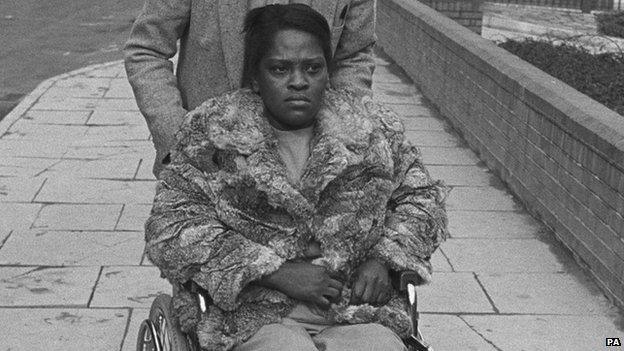
Cherry Groce died in April 2011, having spent 26 years in a wheelchair
Cherry Groce was paralysed from the waist down after being shot during a police raid on her home in 1985. The shooting sparked rioting in Brixton.
She died in April 2011 having spent 26 years in a wheelchair, but little else is known about Mrs Groce. Her son Lee Lawrence talks about his mother and how the family's lives were affected.
"She couldn't feel her legs. She couldn't breathe. She thought she was going to die," said Mr Lawrence, 29 years on.
"I'll never forget - we were at the window as children - crying, watching her go into the ambulance.
"But she waved and smiled to reassure us that she was OK. Even in her time of need, she still had us at the forefront of her mind."
Mr Lawrence said they were a regular family living in Brixton. He was one of eight children.
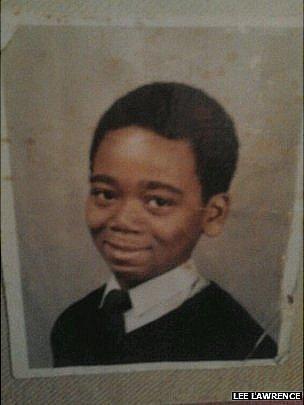
Lee Lawrence was 11 when his mother was shot
"I was a normal kid in a good community," he said.
"We didn't have a lot but we were happy."
Dorothy "Cherry" Groce had migrated to Britain from Jamaica in her teens.
"She was very proud of her culture," said Mr Lawrence.
"She spoke with strength about who she was and where she came from.
"She was loving, caring and understanding, so our house was a welcoming place."
Mrs Groce was a devoted Motown music fan, her son said.
"She had a big collection of vinyl and was always playing music in the house," he said.
"She listened to Al Green, Otis Redding and Percy Sledge - these were the characters we grew up with."
She was someone who liked to socialise and was "well-known and respected" in the community, he adds.
"But above all she was a full-time mother."
He said Mrs Groce took her role as a mother very seriously.
But in the early hours of 28 September 1985, the family's lives dramatically changed.
Left 'devastated'
Police raided Mrs Groce's terraced home looking for her son Michael, who was wanted in connection with an armed robbery. He was never charged in connection with that or the riot which followed his mother's shooting.
There were four children in the house at the time, said Mr Lawrence.
Cherry Groce's son Lee Lawrence talks about her shooting
Mrs Groce, who was 37, was shot in the shoulder by Insp Douglas Lovelock.
Mr Lawrence, who was 11 at the time of the shooting, said he was left "devastated".
"My mum had always been the rock for us - a tower of strength at the centre of the family."
After she was shot, he saw his mother look up to him "in such a vulnerable position" for the first time, he said.
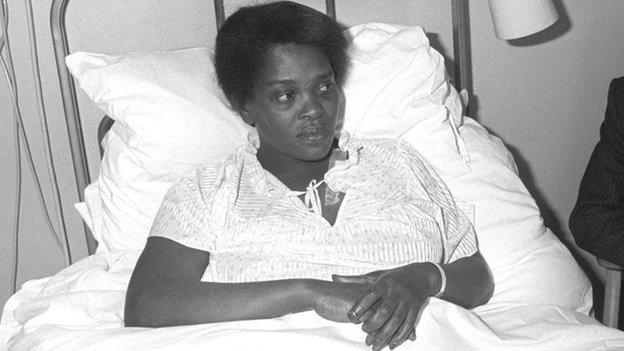
Mrs Groce spent much of the first year following her shooting in hospital
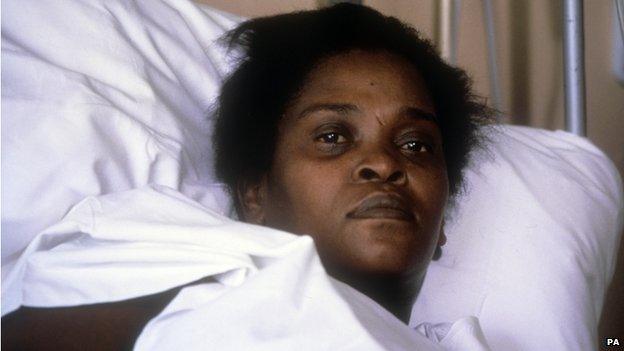
Cherry Groce was paralysed from the waist down in the shooting
Mrs Groce was in hospital for the following year while Mr Lawrence and two of his siblings went to stay with a family friend.
"We were all scattered around the place and it made it really difficult," he says.
"Our lives had been turned upside down. It was the world of the unknown," Mr Lawrence said.
The family were eventually reunited at a bungalow in Gypsy Hill, south London.
'Internal battle'
The children became carers for their mother.
"There was no manual. No support. No counselling. We had to roll up our sleeves."
But he praised his mother's determination to become rehabilitated.
"She needed to get back to being a mother - to get her children back to having as much of a normal life as possible.
"She would cook, hoover and try to do as much as she could from that wheelchair."
Reflecting on the shooting, he said: "You couldn't say 'wrong place, wrong time' about this."
He said his mother told him: "I was at home - in the safest place."
"But Mum accepted that if someone was going to get shot in the house, she would have rather it would have been her."
Of the riots which followed, he said: "Initially she was very thankful to the community who wanted to question why this happened.
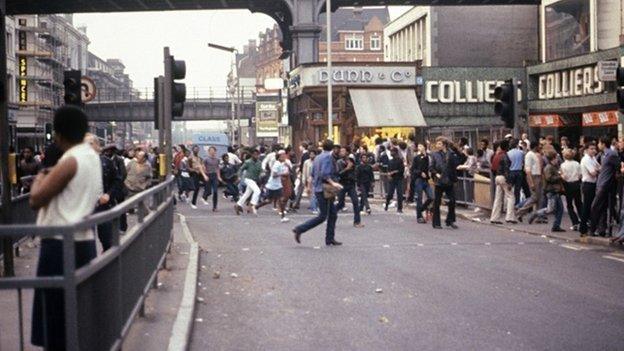
Dozens of people were injured in the unrest in Brixton, which followed the shooting
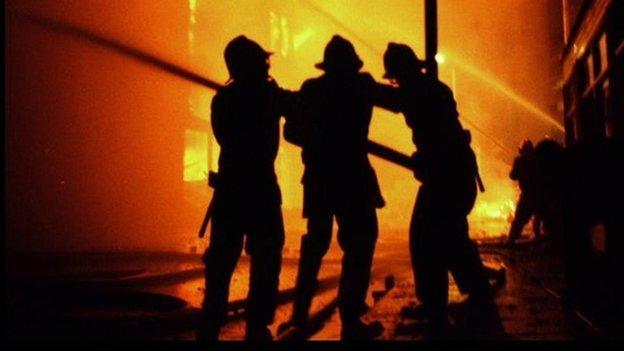
Ten police officers were injured in the riot
"But she never wanted the destruction in terms of the riot. It was never something she condoned."
Instead, the battle she fought was "internal", he said.
"She suppressed her own feelings because her main goal was to survive for her children."
Mr Lovelock was cleared by a jury in 1987 of all criminal charges in relation to the shooting.
However, Mr Lawrence said there were still unanswered questions surrounding the shooting and his mother had "waited her whole life for justice".
Mr Lawrence led the campaign to get legal aid for an inquest into his mother's death, including taking a petition with 130,000 signatures to 10 Downing Street.
Ministers eventually overturned the decision to block legal aid.
Now the inquest is over, Mr Lawrence said he planned to channel his energy into the Cherry Groce Foundation.
Through the charity, which supports people who have become disabled and their carers, he says he "hopes his mother's legacy will live on".
"She was my biggest inspiration", he said.
- Published1 July 2014
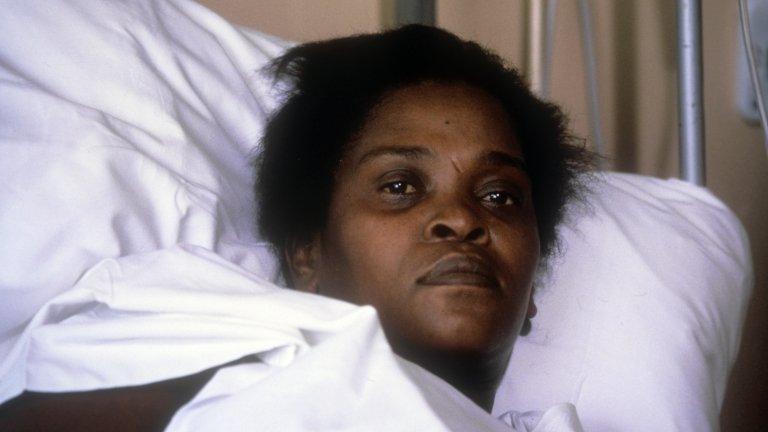
- Published30 June 2014

- Published11 April 2014

- Published3 April 2014

- Published22 March 2014
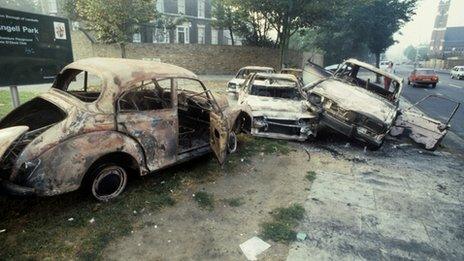
- Published24 May 2011
